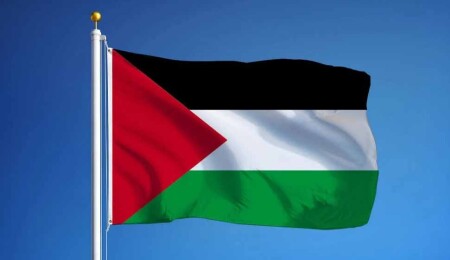Three-Quarters of UN Members Support Palestinian Statehood

Three-quarters of U.N. members have already or soon plan to recognise Palestinian statehood, with Australia on Monday becoming the latest to promise it will at the U.N. General Assembly in September.

The Israel-Hamas war, raging in Gaza since the Palestinian militant group's attack on October 7, 2023, has revived a global push for Palestinians to be given a state of their own.
The action breaks with a long-held view that Palestinians could only gain statehood as part of a negotiated peace with Israel.
According to an AFP tally, at least 145 of the 193 UN members now recognise or plan to recognise a Palestinian state, including France, Canada and Britain.
Here is a quick recap of the Palestinians' quest for statehood:
1988: Arafat proclaims state
On November 15, 1988, during the first Palestinian intifada, or uprising against Israeli rule, Palestinian leader Yasser Arafat unilaterally proclaimed an independent Palestinian state with Jerusalem as its capital.
He made the announcement in Algiers at a meeting of the exiled Palestinian National Council, which adopted the two-state solution as a goal, with independent Israeli and Palestinian states existing side-by-side.
Minutes later, Algeria became the first country to officially recognise an independent Palestinian state.
Within a week, dozens of other countries, including much of the Arab world, India, Turkey, most of Africa and several central and eastern European countries followed suit.
The next wave of recognitions came in late 2010 and early 2011, at a time of crisis for the Middle East peace process.
South American countries, including Argentina, Brazil and Chile, answered calls by the Palestinians to endorse their statehood claims.
This came in response to Israel's decision to end a temporary ban on Jewish settlement-building in the occupied West Bank.
2011-2012: UN recognition
In 2011, with peace talks at a standstill, the Palestinians pushed ahead with a campaign for full UN membership.
The quest failed, but in a groundbreaking move on October 31 of that year, the UN cultural agency UNESCO voted to accept the Palestinians as a full member, much to the dismay of Israel and the United States.
In November 2012, the Palestinian flag was raised for the first time at the United Nations in New York after the General Assembly overwhelmingly voted to upgrade the status of the Palestinians to "non-member observer state".
Three years later, the International Criminal Court also accepted the Palestinians as a state party.
2024-2025 new push
Israel's offensive in Gaza after the October 7, 2023 attack has boosted support for Palestinian statehood.
Four Caribbean countries (Jamaica, Trinidad and Tobago, Barbados and the Bahamas) and Armenia took the diplomatic step in 2024.
So did four European countries: Norway, Spain, Ireland and Slovenia, the latter three EU members.
Within the European Union, this was a first in 10 years since Sweden's move in 2014, which resulted in years of strained relations with Israel.
Other member states, such as Poland, Bulgaria and Romania, had already done so in 1988, long before joining the EU.
On the other hand, some former Eastern bloc countries, such as Hungary and the Czech Republic, do not or no longer recognise a state of Palestine.
Australian Prime Minister Anthony Albanese said Monday that "Australia will recognise the right of the Palestinian people to a state of their own" at the U.N. General Assembly.
France said last month it intends to recognise a Palestinian state come September, while Britain said it would do the same unless Israel takes "substantive steps", including agreeing to a ceasefire in Gaza.
Canada also plans to recognise a Palestinian state in September, Prime Minister Mark Carney said, marking a dramatic policy shift that was immediately rejected by Israel.
Among other countries that could also formally express recognition, Malta, Finland and Portugal have raised the possibility.
Source: HDN












Yorumlar
Dikkat!
Suç teşkil edecek, yasadışı, tehditkar, rahatsız edici, hakaret ve küfür içeren, aşağılayıcı, küçük düşürücü, kaba, müstehcen, ahlaka aykırı, kişilik haklarına zarar verici ya da benzeri niteliklerde içeriklerden doğan her türlü mali, hukuki, cezai, idari sorumluluk içeriği gönderen Üye/Üyeler’e aittir.